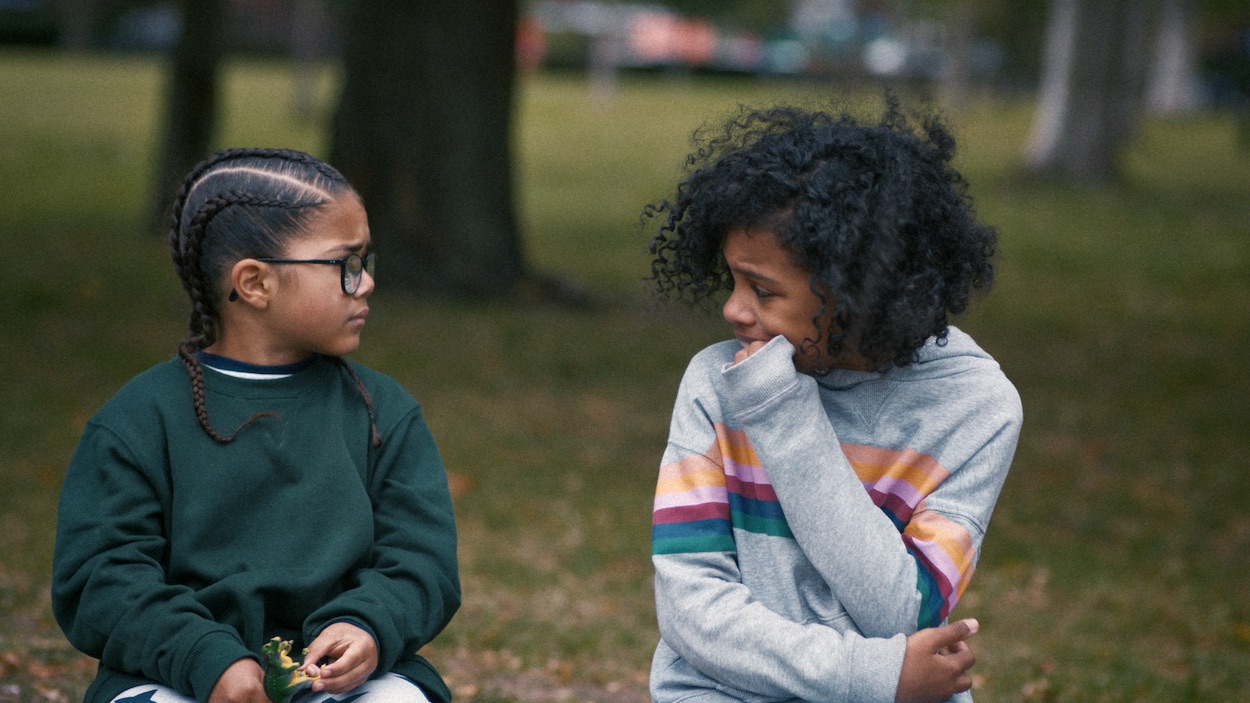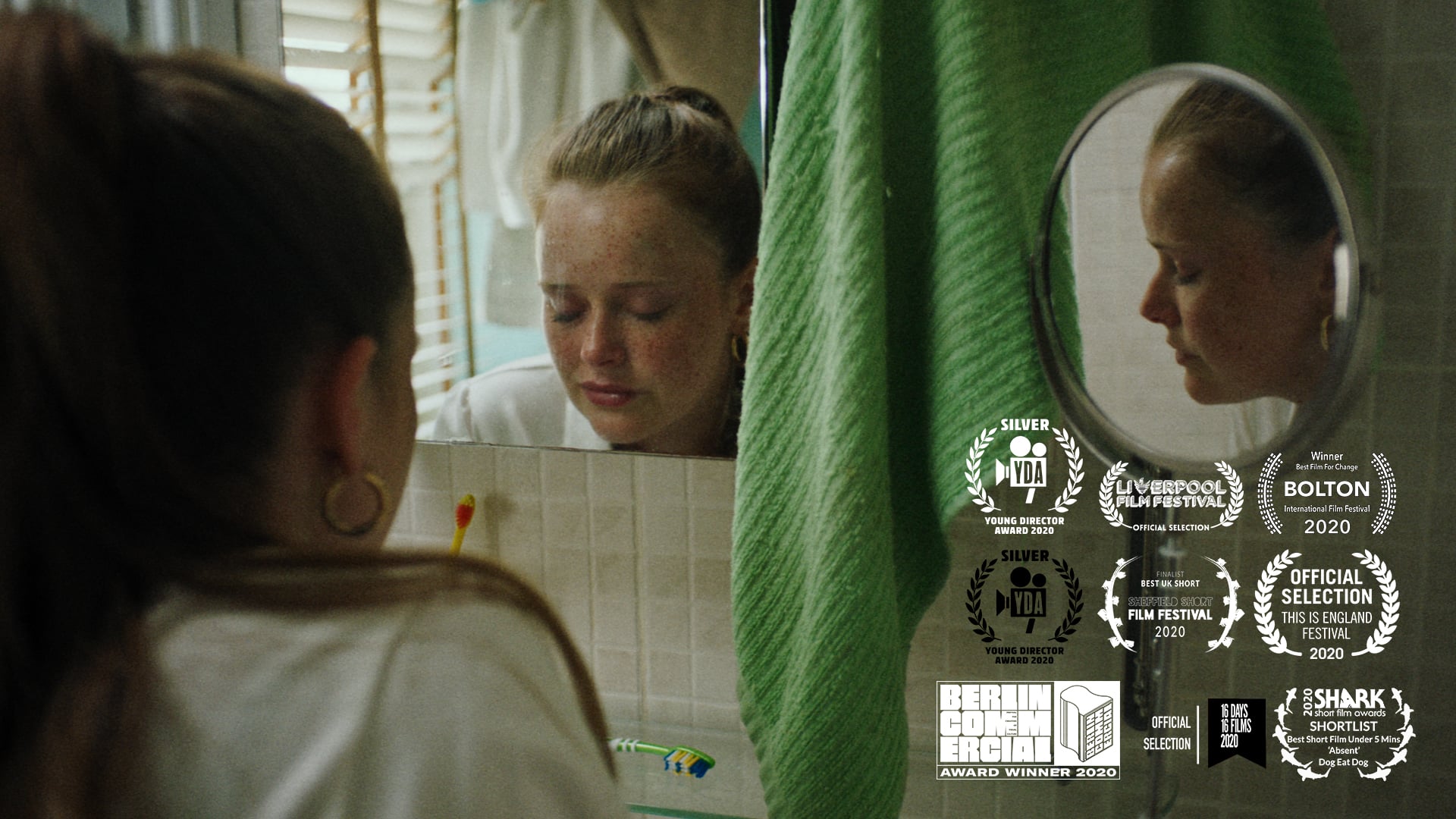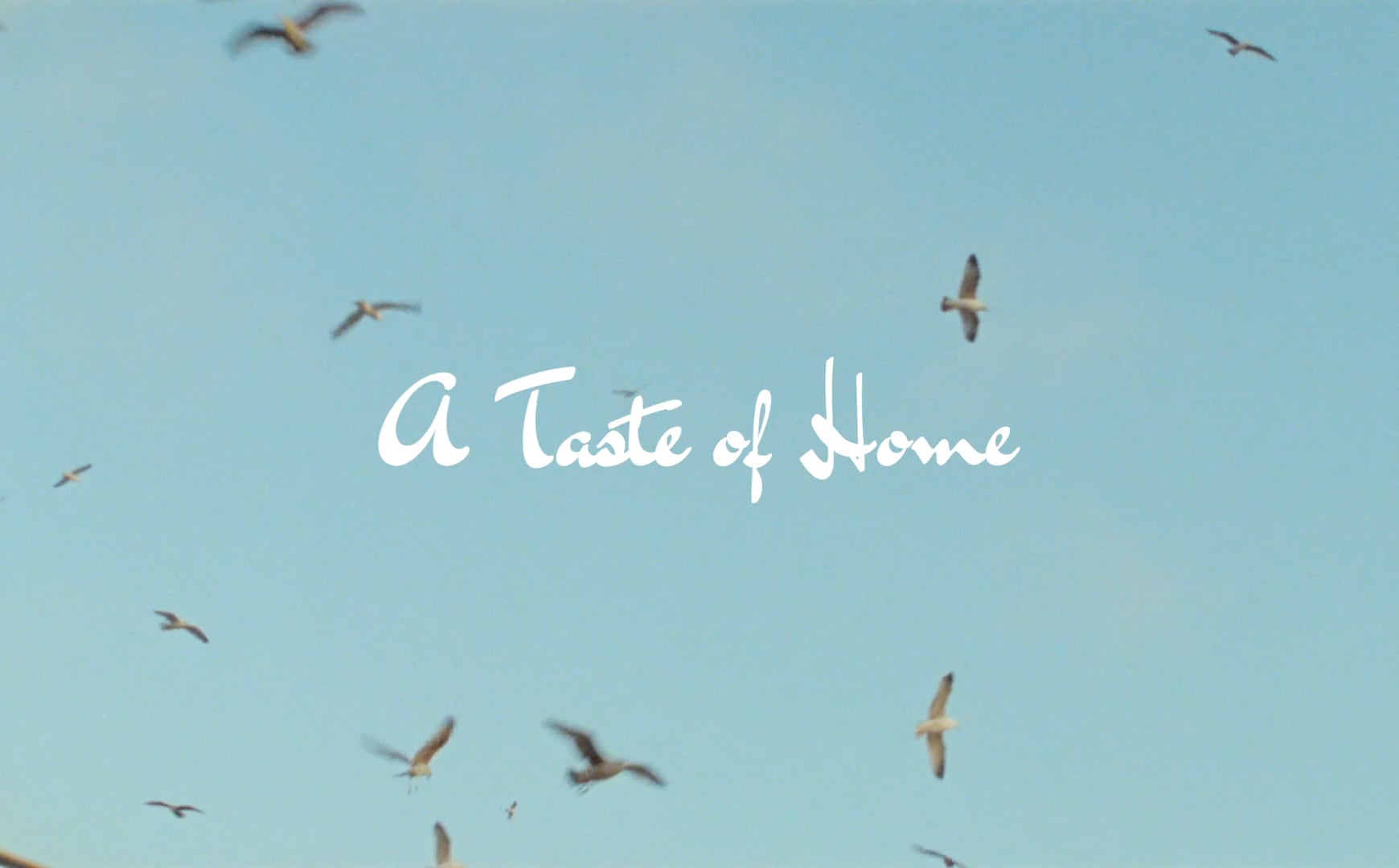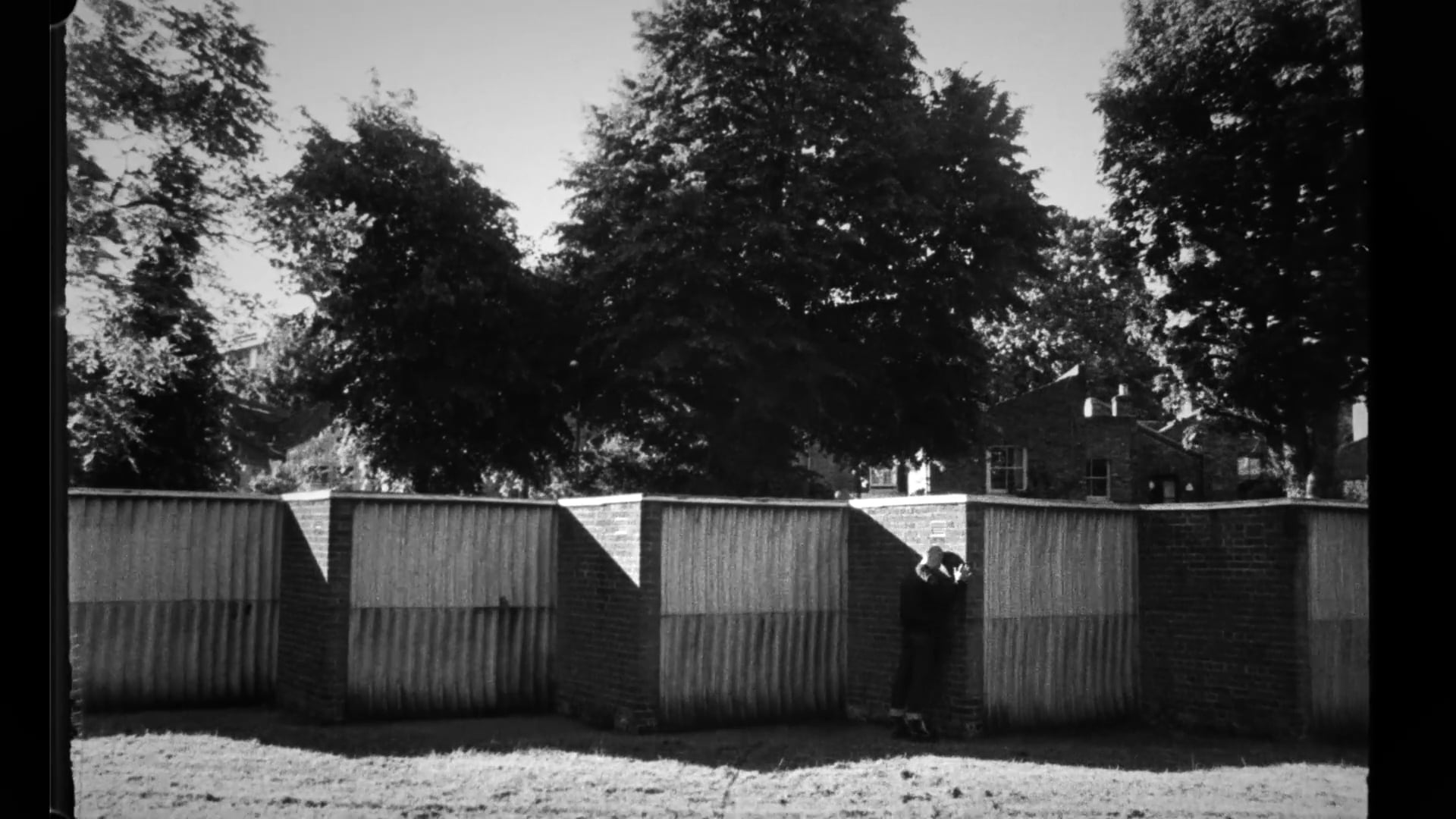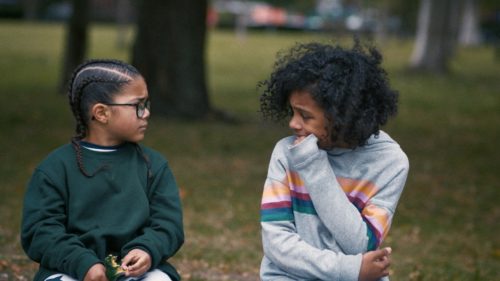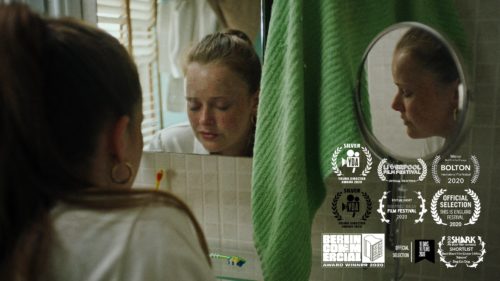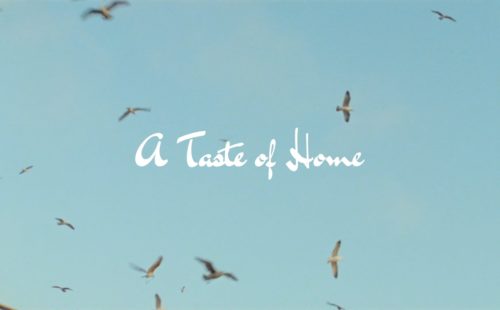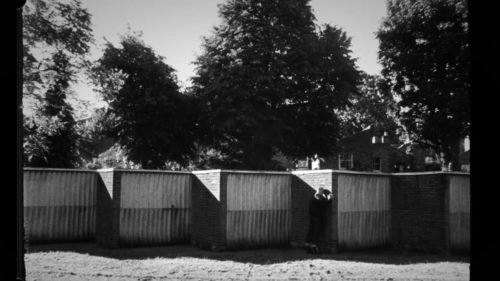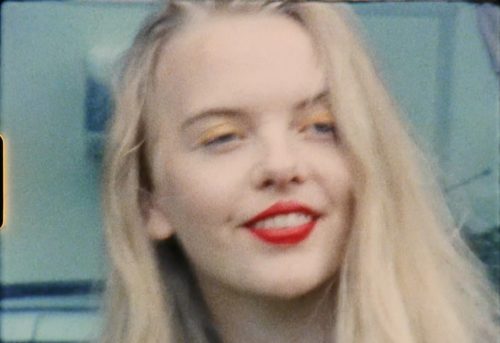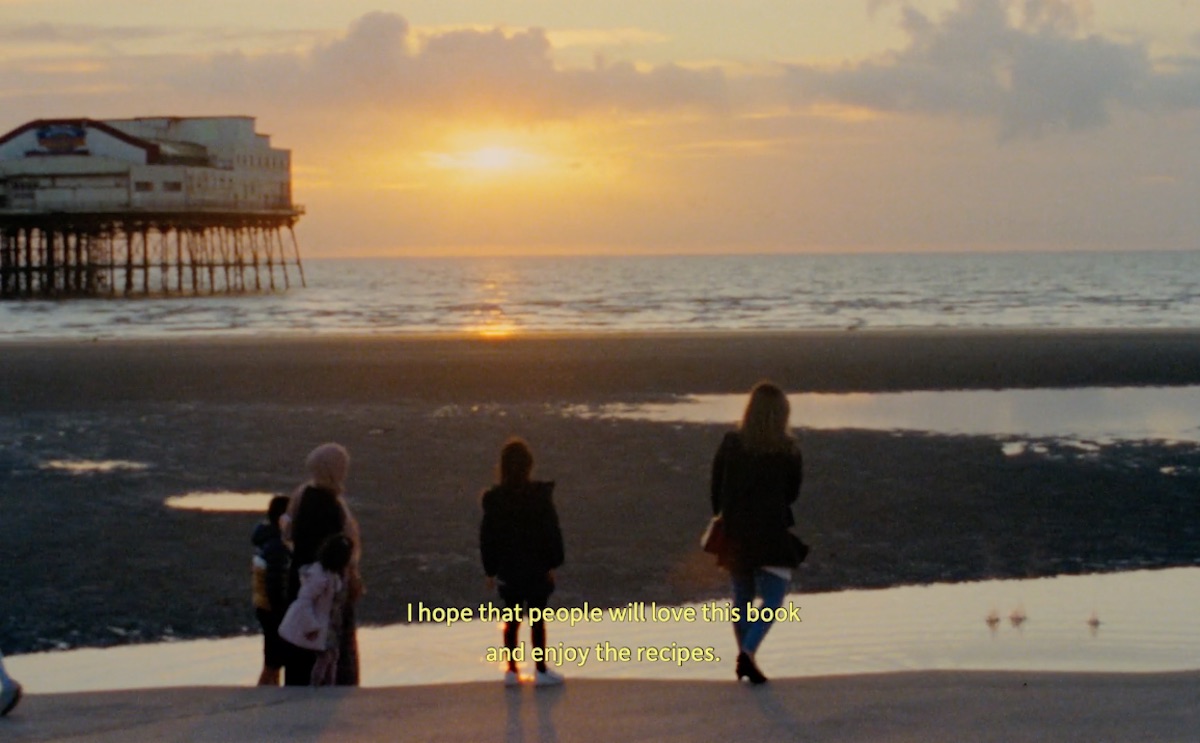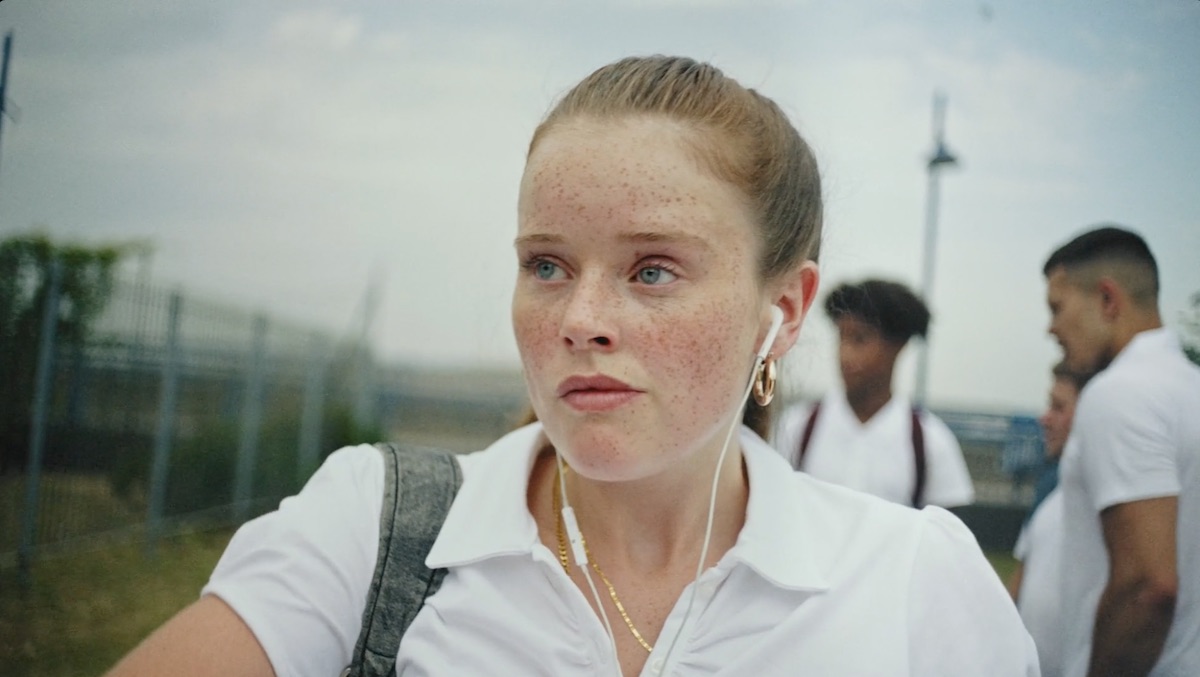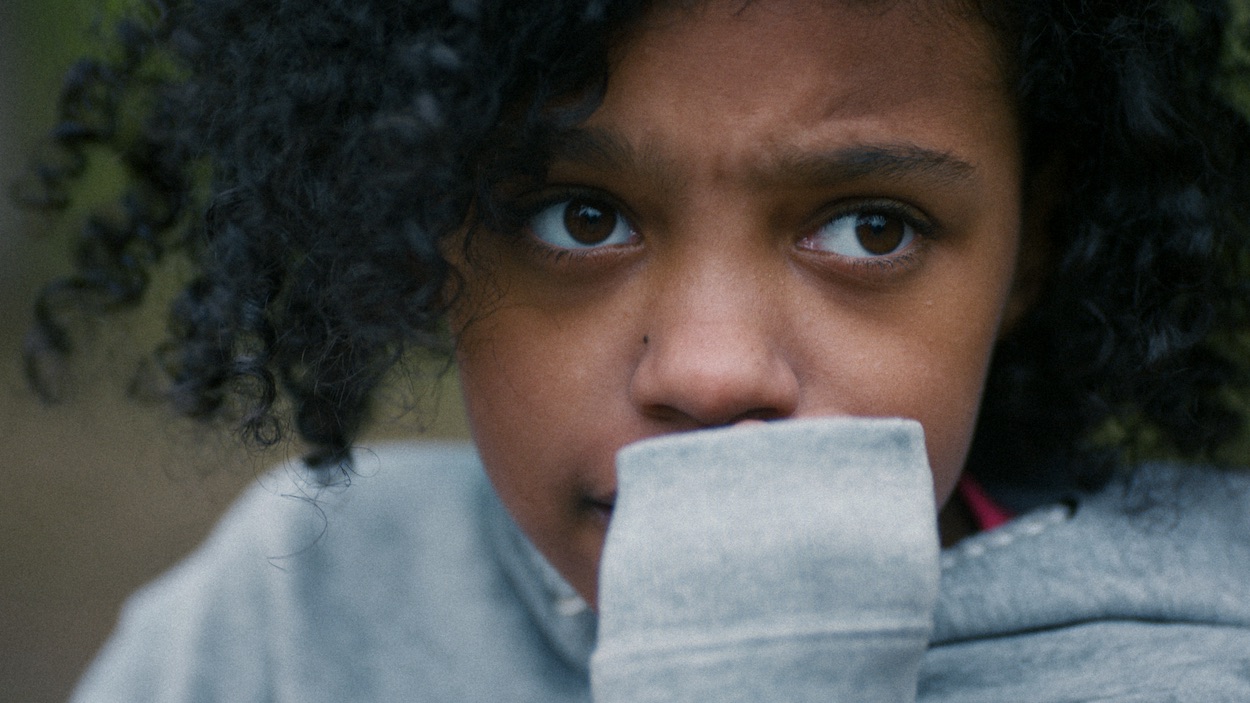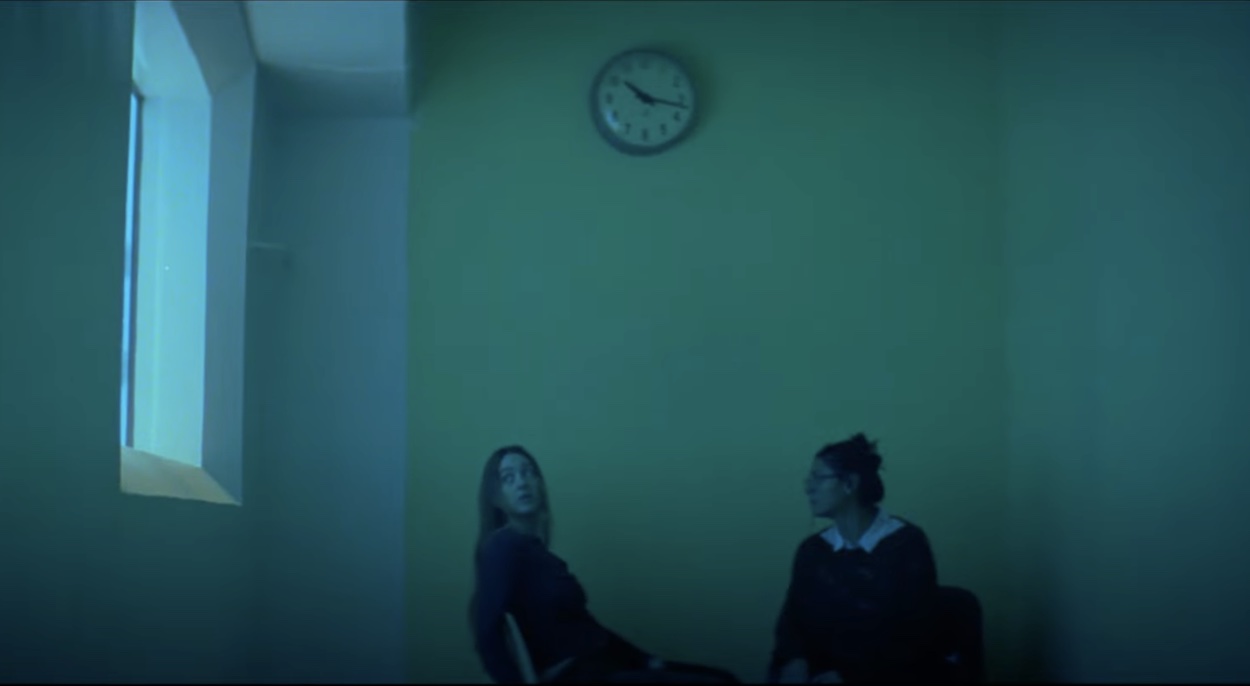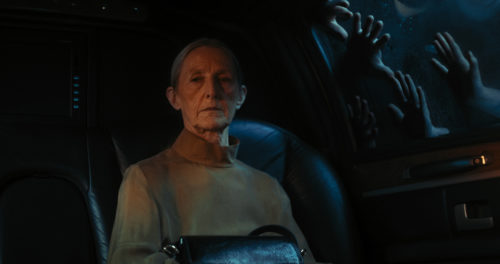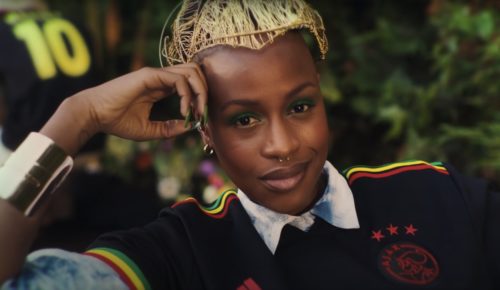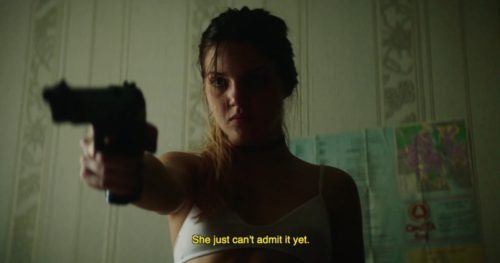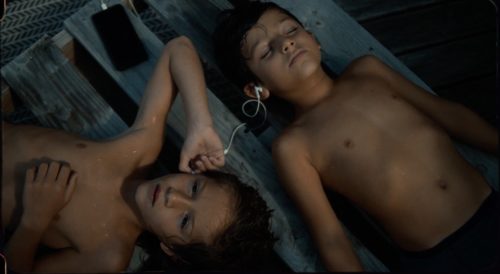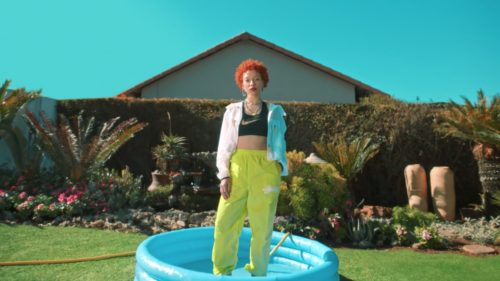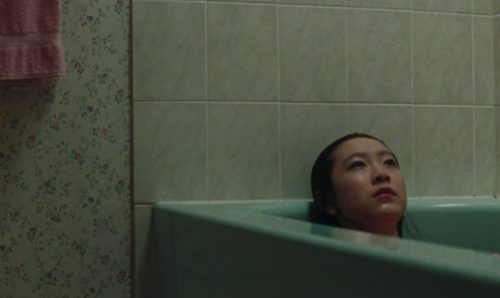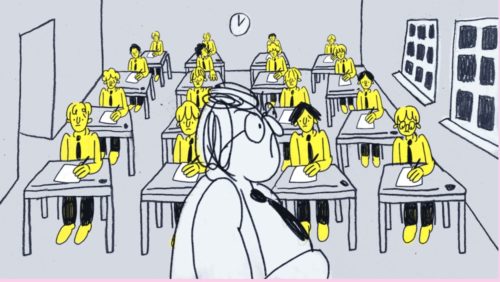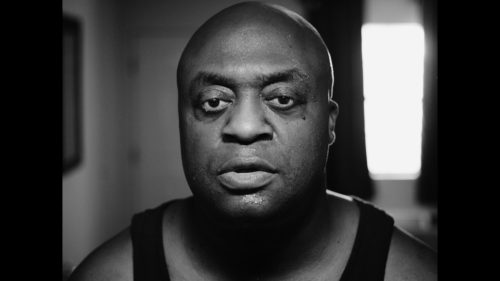You were born and bred in Lancashire: tell us a bit about your formative years. Did you come from a creative background?
I come from the middle of nowhere in Lancashire, on the border with Cumbria and North Yorkshire, so there wasn’t a right lot going on in terms of filmmaking there. My mum was a nurse/midwife and my dad was a dentist, so I don’t suppose that I come from a traditionally creative background, but there was creativity in the house. My parents are both really into music – my mum loves Northern Soul and Motown, and my Dad loves Bob Dylan, Jimi Hendrix and Neil Young – so there was always dancing to be done. Music was a big part of my formative years. At the time, me and my friends felt like London was the epicentre of everything. We were outsiders looking in. I was desperate to get to Camden and bump into Pete Doherty. Now that I live in London, I feel very nostalgic about where I grew up. There’s a sense of community in those small towns, in the old pubs, under big grey skies, that you don’t get in London.
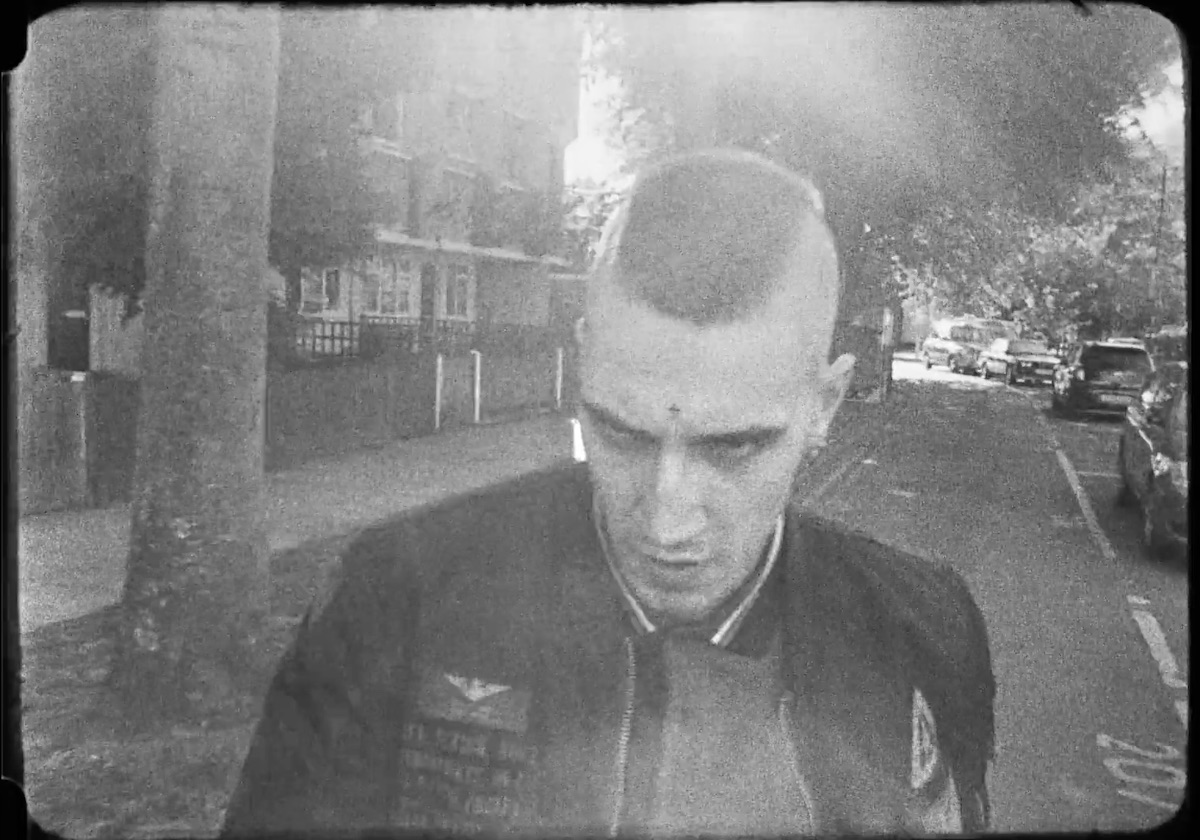
Mettle
What inspired you to pursue first a career in photography, and then to pivot into directing? And how do you think your stills work informs your directing approach, and vice versa?
Growing up, I spent a lot of time going to gigs, and then in Dublin, where I went to university. With gigs came gig photography and so I started taking pictures of bands. It was a time when the 5D reigned supreme and shallow depth of field was finally readily available to us all (praise be!). I think a lot of photographers at that time used the 5D to cross over into filmmaking. I became a videographer for bands and toured all over the world with them (I was away with Royal Blood for most of 2014). I am grateful to have some technical understanding of cameras. Although not necessary, I do find it easier to communicate with DOPs because of it. Photography is my first love though. The proximity to a subject and the lack of crew means there is an immediacy to the work which you don’t often get in filmmaking. I suppose that’s why I like to shoot most of my films handheld and with as few lights as possible. I don’t like the faff of spending a day setting up for one shot; for me it takes away the magic. That’s not to say I don’t absolutely love it when other people do it!
You started off in music videos and music documentaries, dabbled in interpretative dance (Mettle) and recently shifted into more narrative work. Is variety important to you as a director? Do you feel like you’ve found your niche in docu-shorts?
As I mentioned earlier, music has always been a big part of my life. We grew up watching music videos and then I was one of those annoying teenagers who had to know the newest bands immediately and then pretended I had known about them for ages. So I think I will always do music videos. Sometimes I can’t believe that’s my job. Sixteen-year-old me wouldn’t believe the people I’ve met and worked with. However, the older I get, the more responsibility I feel as a filmmaker. I feel a responsibility as someone with a platform to hold a mirror up to society and demand people look at it. I want to continue down this path for as long as I am allowed. If I can make more narrative films that are based on reality, I will be incredibly humbled and happy.
A Taste of Home
You’ve maintained links to your northern roots with both A Taste of Home – set in Blackpool – and Absent, which was created for a Leeds-based charity. How has the culture, values, socio-economic landscape etc of the north west coloured your aesthetic and approach?
I feel very attached to the North West. My family are all up there and a lot of my friends. I love being from there, and in a way it has formed my identity more now that I have left. Leaving it has taught me the value of it somehow. I look at the landscapes that I used to find dull and oppressive, as beautiful and worth photographing and sharing now. I suppose it’s hard to appreciate a place fully when you’re in it. I look to the North West, for stories and characters because I find the people interesting and willing to share their stories in an unguarded way. Aesthetically, I will forever be drawn to dramatic hills, big oppressive skies and forgotten seaside towns, but who isn’t?
I care about what happens up there: now, more than ever, the [UK’s] North/South divide feels huge. I hope that people realise now you don’t have to be physically in London to be taken seriously as a creative.
Absent
In Absent, your short film about period poverty, you painted a subtle portrait of austerity Britain, where a working mum faces a stark choice between topping up the meter or buying her daughter sanitary towels. How did the collaboration with Freedom4girls come about? Was the film inspired by real-life anecdotes?
Freedom4girls is a charity I have known and respected for a long time. It is run by my friend and the producer of Absent’s mum, so I have followed their work for a number of years now. We had spoken about making a film for a while, but wanted to make sure it was told right. A lot of people don’t know period poverty exists in the UK, let alone how prevalent it is. There is still so much stigma attached to periods in general, so it makes it hard for people to talk about period poverty. We thought a short film was the most accessible way to reach audiences.
Absent is based on multiple true stories that were merged into one film. We wanted the message to be twofold. Firstly, to raise awareness about period poverty in the UK, and secondly to break the stigma surrounding periods by showing that talking about periods is OK. It’s not dirty, it’s not shameful, it’s natural and it’s important for people not to shy away from the discussion.
Your most recent film, Tinned Pears for Chefs in Schools, addresses another big issue in the UK – food poverty, which campaigns like Marcus Rashford’s free school meals have helped shine a light on. The children’s performances make it an especially hard-hitting watch – how did you approach casting? And what made you choose a tin of pears as the focal point?
We shot Tinned Pears a few weeks ago and casting had to happen pretty quickly as this topic is so pressing. Because of Covid-19, all casting had to happen online and via Zoom which isn’t ideal – however our casting director Emma Garrett is absolutely outstanding. She cast my last film too, and she immediately understood what this film required. I wanted the film to feel real, almost like a documentary, so casting kids who were natural and ‘authentic’ on screen was the most important thing for me. Maiya and Ortisé (Ava and Miles in the film) hadn’t met me, or each other, until the day we shot. This was nerve-racking, but in a way, it added to the spontaneity of shooting in that documentary style. Nothing was over-rehearsed as we simply didn’t have time. Unique Spencer, who plays [the mother] Kate, was incredible with them too. She made them feel at ease and we shot a lot when they were just messing about as kids generally do!
Lucy MacCarthy who wrote Tinned Pears came up with the name and it was her idea to make the tin the focal point. Lucy also wrote Absent – she’s a fantastic writer. We collaborate together to come up with parts of the story, what we feel needs to be said, and I will often do a lot of the research but the story came from Lucy.
Tinned Pears
Both Absent and Tinned Pears are vivid examples of film’s potential to be a catalyst for social change. How much responsibility do you feel as a filmmaker to create the kind of work that shifts perspectives and galvanises people into action?
I feel hugely responsible. We are living in one of the wealthiest, most educated countries in the world and on our doorstep millions of children are living in poverty. Asylum seekers are dying trying to reach our shores and our government wants to turn them away rather than offer them safe passage. I feel ashamed of what is happening in the UK right now. If I can change one person’s opinion, if I can make a film that encourages someone to learn more, at the very least I feel like I am doing something.
What are you working on at the moment?
It’s a weird time right now, jobs seem to appear and then disappear at the drop of a hat. Luckily, I have a music video on the horizon and a couple of live performance music videos to keep me busy. In the meantime, I am on the hunt for writers to collaborate with. I just want to keep making films.
Interview by Selena Schleh
Libby Burke Wilde website
